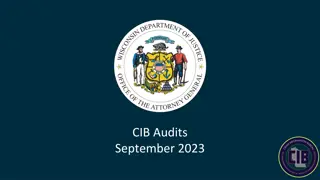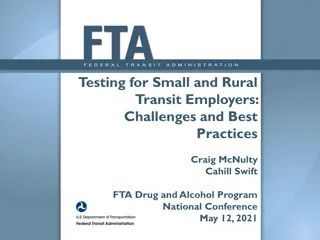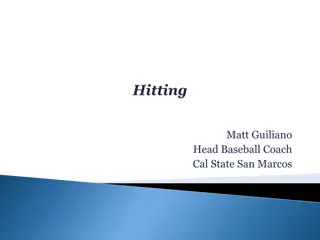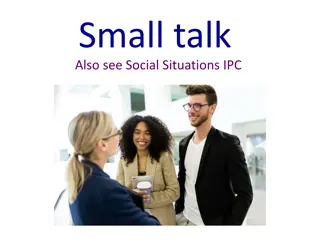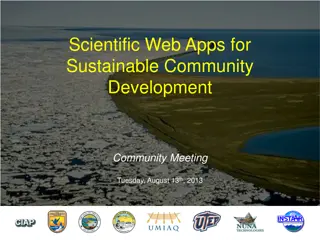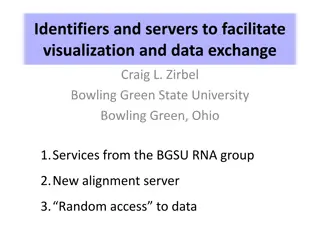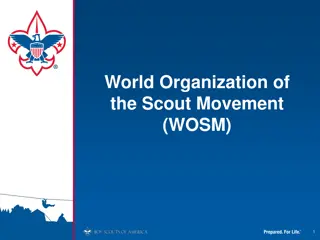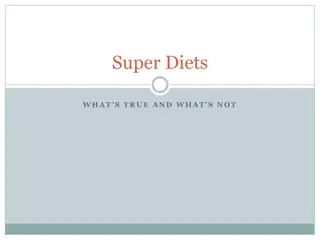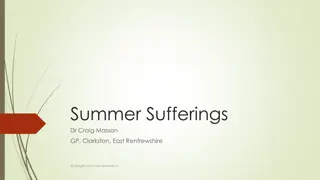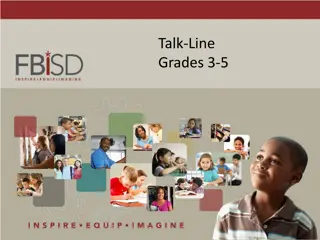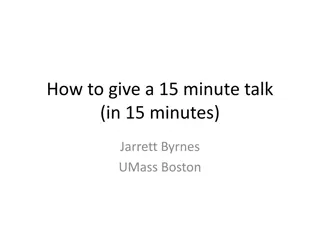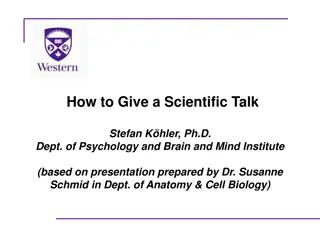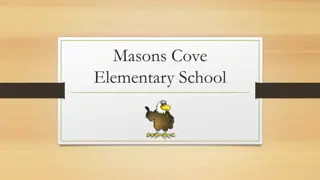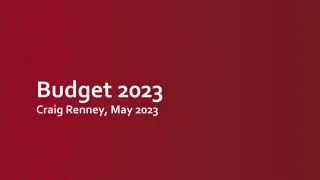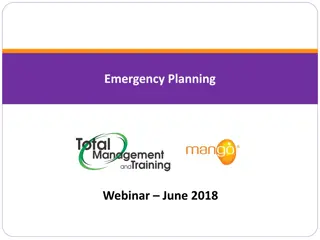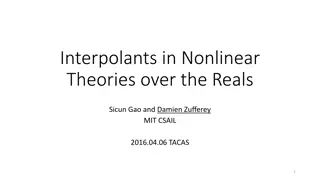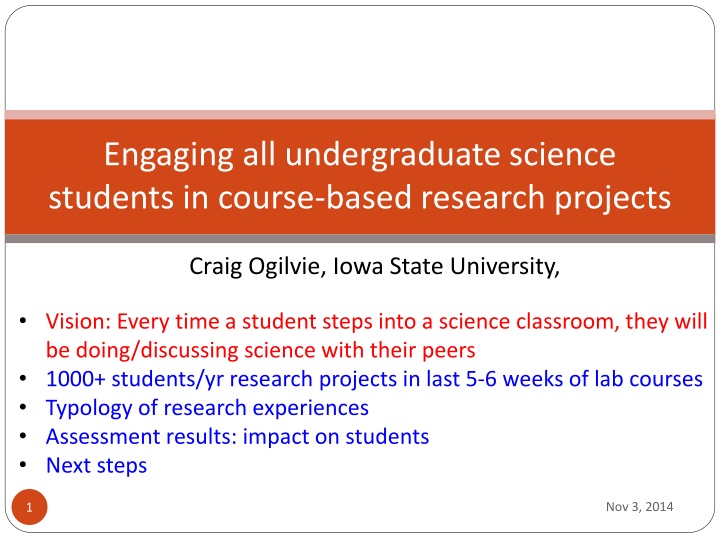
Engaging Undergraduate Science Students in Course-Based Research Projects
"Explore innovative strategies to involve undergraduate science students in course-based research projects across various disciplines like Human Physiology, Genetics, and Astronomy. Discover effective methods to enhance student engagement, foster critical thinking, and promote collaborative learning in lab courses."
Download Presentation

Please find below an Image/Link to download the presentation.
The content on the website is provided AS IS for your information and personal use only. It may not be sold, licensed, or shared on other websites without obtaining consent from the author. If you encounter any issues during the download, it is possible that the publisher has removed the file from their server.
You are allowed to download the files provided on this website for personal or commercial use, subject to the condition that they are used lawfully. All files are the property of their respective owners.
The content on the website is provided AS IS for your information and personal use only. It may not be sold, licensed, or shared on other websites without obtaining consent from the author.
E N D
Presentation Transcript
Engaging all undergraduate science students in course-based research projects Craig Ogilvie, Iowa State University, Vision: Every time a student steps into a science classroom, they will be doing/discussing science with their peers 1000+ students/yr research projects in last 5-6 weeks of lab courses Typology of research experiences Assessment results: impact on students Next steps Nov 3, 2014 1
How to get more students engaged in research? Different types of 5-week projects in lab courses Constraint: operational costs ~ same as traditional labs Individual student in faculty lab Depth of experience Student research idea, done in course Class coopted into faculty lab Class-wide, linked projects Student extensions of inquiry labs Inquiry labs Reach more students 2 Nov 3, 2014
Student-driven extensions of inquiry labs Human Physiology (470 students) Students complete standard human physiology investigations. After each lab, asked to develop a hypothesis would they be able to test using the protocols they had just learned. Students received constructive feedback from TAs Final 4 weeks of the semester, student teams chose one of their proposed investigations as a research project. Nov 3, 2014 3
Class-wide, linked projects Intro Geology (150 students) Student groups studied surface water and groundwater quality issues using monitoring wells. Each group developed an open-ended research question. collected, synthesized and summarized the data, and presented their results in a conference-style poster session. Nov 3, 2014 4
Class coopted into faculty lab Genetics (325 students) Students unofficially joined the NSF Engineering Research Center for Biorenewable Chemicals (CBIRC) Biorenewable feedstock to replace petroleum-based products. Can we engineer model organisms (yeast) to make more fat? Each group of students designed an experimental investigation to compare fatty acid production of their strain of yeast compared with a parental strain. Promising results sent to CBIRC for follow-up Nov 3, 2014 5
Student research idea, done in a course Astronomy (30 students) Students used a variety of small telescopes, up to 14-inch in size, together with Charged-Coupled- Device (CCD) imaging. Example projects included Observations of bright stars in two young galactic clusters to determine their respective evolutionary state Determination of properties of the bright stellar population in a nearby galaxy Detection of an extrasolar planet orbiting a star over 450 light years from Earth. Nov 3, 2014 6
More students engaged in research 1105 student research experiences N=80 N=325 N=180 N=470 Meteorology, Astronomy, Animal Behavior Genetics, Chemistry for majors N=9850 Geology, Organic chemistry Human Physiology Physics, Chemistry, Biology, Geology 7 Nov 3, 2014
How implemented Faculty Learning Community (FLC) meeting for 4 years Plan, support first implementations, adjust, assess impact Larger projects had startup help Education postdoc or graduate student Equipment Operational costs kept ~ as original lab course Graduate TA learning community Discuss student learning, how to assist with research planning, changes, . Led by postdocs, senior TAs Nov 3, 2014 8
Assessment: Nature of Science (NOS) Pre Post Creativity Science Idea acceptance Social interaction Cultural Influences Observations Method Across all courses, no improvement, except creativity SUSSI, Liang et al, 2008 Nov 3, 2014 9
Assessment: Nature of Science (NOS) Students asked to write/reflect on some topics of NOS moderate improvement Reflection (instructor choice) gain=???? ??? ??? ??? No reflection Social interaction Creativity Observations Cultural Influences Idea acceptance Science Method Students come to university science with NOS conceptions that are difficult to substantially alter. Nov 3, 2014 10
Next steps (HHMI 2014-18) Adapt Univ. of Texas, Austin, Freshmen Research Initiative to bring more course-based research into 1st year Spring semester Lab credit ~24 students work on class-wide, linked projects Part of their major, Learning Community Undeclared students (500 each year) Interdisciplinary projects aligned with their declared interests Nov 3, 2014 11
Conclusion Vision: Every time a student steps into a science classroom, they will be doing/discussing science with their peers Implemented course-based research projects. ~1100 students each year From student-driven extensions of inquiry labs to student generated research idea Faculty Learning Community key to plan, support each other Explicit writing/reflections leads to moderate improved NOS Students come to university science with NOS conceptions that are difficult to substantially alter. Next steps Engage more freshmen and undeclared students Nov 3, 2014 12
Acknowledgments HHMI grant 2010-2014 Cinzia Cervato, Tom Greenbowe, Jo Anne Powell-Coffman, Gene Takle Facilitators of Faculty Learning Communities Charles Kerton, Stan Harpole, Bill Gallus, Nikki Pohl, Diane Bassham, Jim Colbert, Tom Greenbowe, Doug Gentile, Paula Siklody, Nancy Boury, David Vleck, Phil Becraft, Soeren Prell, Tom Holme, Alex Travesset, Jason Chen, Clark Coffman, Cinzia Cervato HHMI Science Teaching Fellows Now faculty: Liz Addis, Mike Slade, Glene Mynhardt Now Center for Teaching Learning: Emily Elliot Current: Carol Chaffee, Jenny Brigham Lab Staff: Linda Westgate, Paula Herrera, Steve Heideman, Teresa Fernando, Chanda Skelton Deans of Liberal Arts and Sciences, College of Agriculture and Life Sciences Chemistry Education postdocs Kim Linenberger, Jeff Raker Community College Leaders Jermaine Johnson, Sally Willson, Chris Russell CESMEE staff Patsey Reilly, Tracie Miller, Stacy Renfro Nov 3, 2014 13
Village Large lecture Inquiry lab Research lab Upper I Upper II Nov 3, 2014 14
SUSSI SUSSI NoS: Student Understanding of Science and Scientific Inquiry (SUSSI, Liang et al, 2005) 8 NoS categories 4 questions with Likert scale 1 short response Pre and post test Scientists use their imagination and creativity when they collect data. A. SD D U A SA Scientists use their imagination and creativity when they analyze and interpret data. B. SD D U A SA Scientists do not use their imagination and creativity because these conflict with their logical reasoning. C. SD D U A SA Scientists do not use their imagination and creativity because these can interfere with the need to be unbiased. D. SD D U A SA Explain why scientists use OR do not use imagination and creativity, and provide examples to support your answer. Nov 3, 2014 15
HHMIISU Project 2010-2014 Goal: Every time a student steps into a science lab, classroom, they will be doing/discussing science with their peers Inquiry labs rather than cook-book labs at 100/200 level 5-6 week research projects in 200/300 level labs 100-300 level courses: active-learning in class meetings Multiple depts: biology, chemistry, physics, astronomy, geology, meteorology, psychology, math Nov 3, 2014 16

